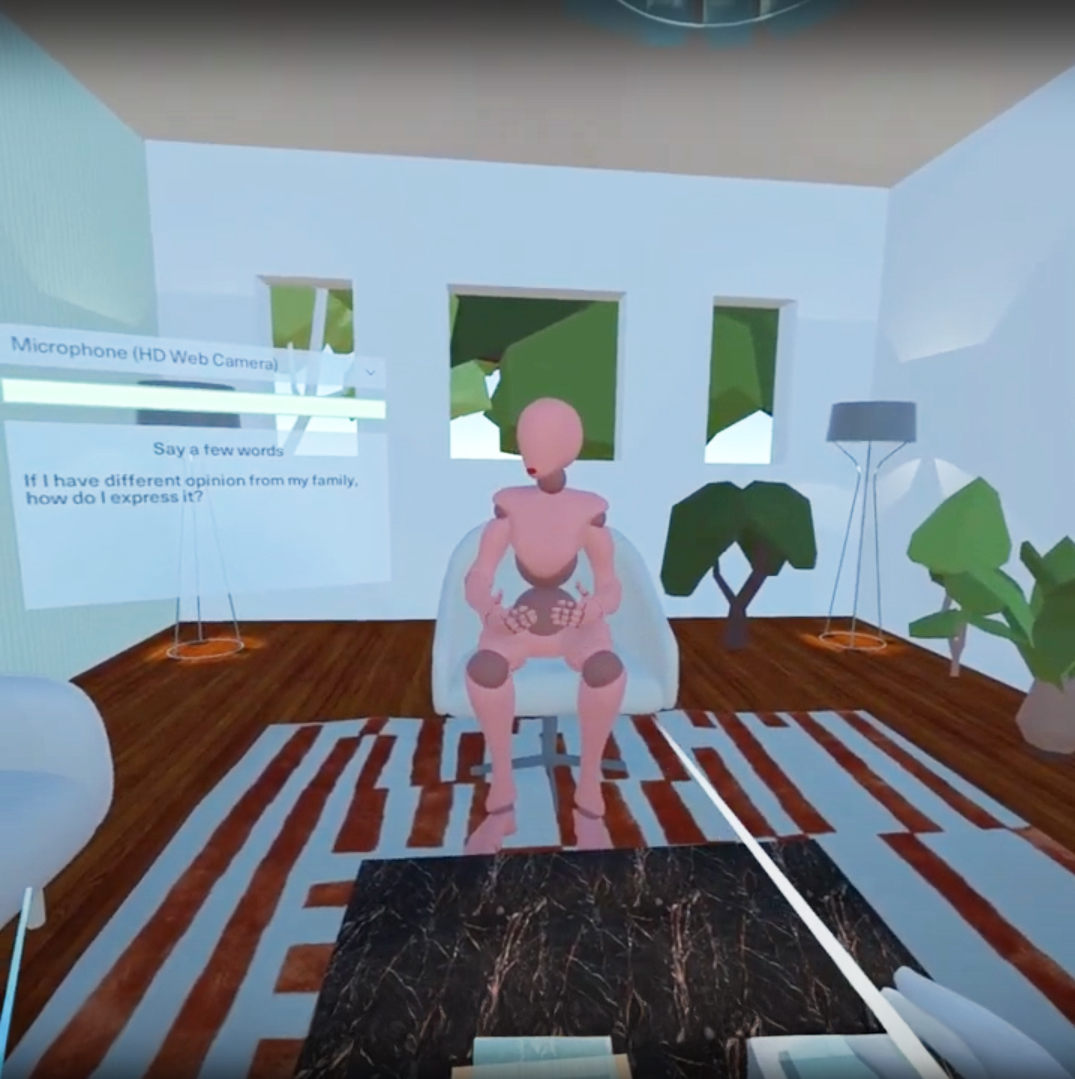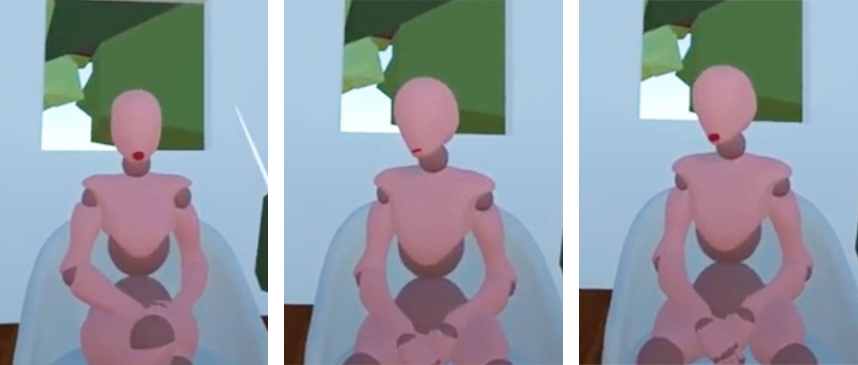VR Therapist [OpenAI]
Tags: Virtual Reality, Avatar, OpenAI, Mental health, Voice-to-text, Text-to-speech
Time : 2 days (2023)
Why
How
What
Next
References:
Softwares: Unity, Jetbrains Rider (C#), Revit
Tech Specification:
Tags: Virtual Reality, Avatar, OpenAI, Mental health, Voice-to-text, Text-to-speech
Time : 2 days (2023)
Why
-
ChatGPT is powerful but lacks presence; therapy benefits from embodiment and context.
- Goal: test whether a calm VR room and humanlike avatar increases willingness to talk.
How
-
Fake the hard parts to learn fast: amplitude-based mouth motion (not full lip-sync).
- Map chat to physical affordances (Record / Receive buttons) and an in-scene transcript.
What
-
Stack: Unity (Quest 2), XR Interaction Toolkit, Mixamo, OpenAI (Whisper + GPT).
-
Loop: Record → Transcribe (Whisper) → Reflect (GPT) → Show/Play reply → Continue.
- Scene: Minimal, soft lighting; seated avatar with simple mouth motion.
Next
- Emotion-reactive room: simple rules first (color/light shift with sentiment).
- Frictionless voice loop: pre-selected mic, inline transcription, auto-advance turns.
- Embodied reply polish: basic viseme lip-sync + idle breathing/gaze; one calm TTS voice.
- Lightweight memory & safety: local session log + “not crisis care” link, optional save.
References:
- Text to Speech with AWS Polly in Unity
-
ChatGPT in Unity
-
Use Your Voice as Input in Unity
- Background music: Renda,David. “Tranquility.” Ambient Chill
Softwares: Unity, Jetbrains Rider (C#), Revit
Tech Specification:
-
Unity Engine [2021.3.23f1]
- XR Interaction Toolkiot [2.3.1]
- Oculus XR Plugin [3.3.0]
- Universal Render Pipeline [12.1.11]
- XR Plugin Management [4.3.3]
- OpenAI Unity [0.1.12] (including Whisper)
- AWS SDK for .NET [Standard 2.0 and 2.1]



Prototype Demo